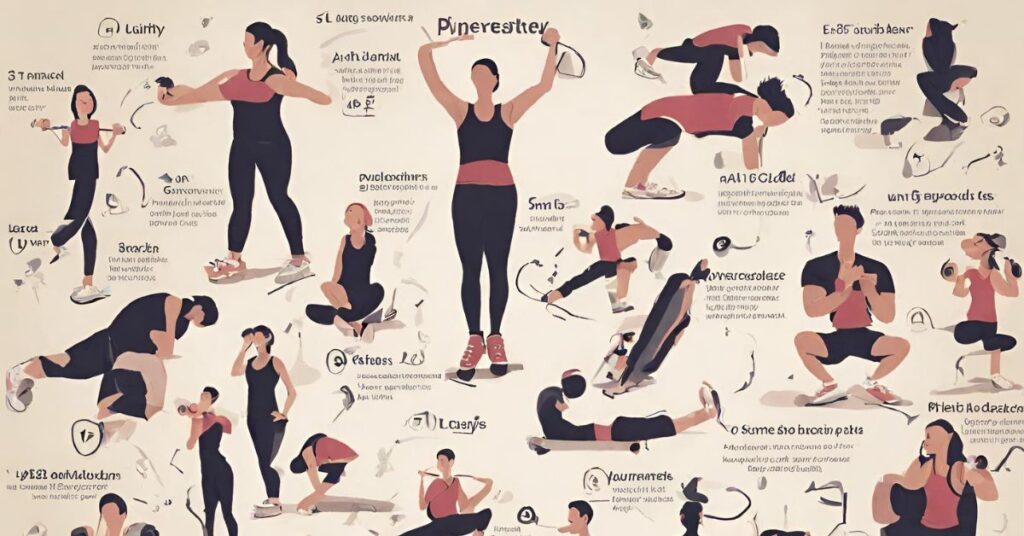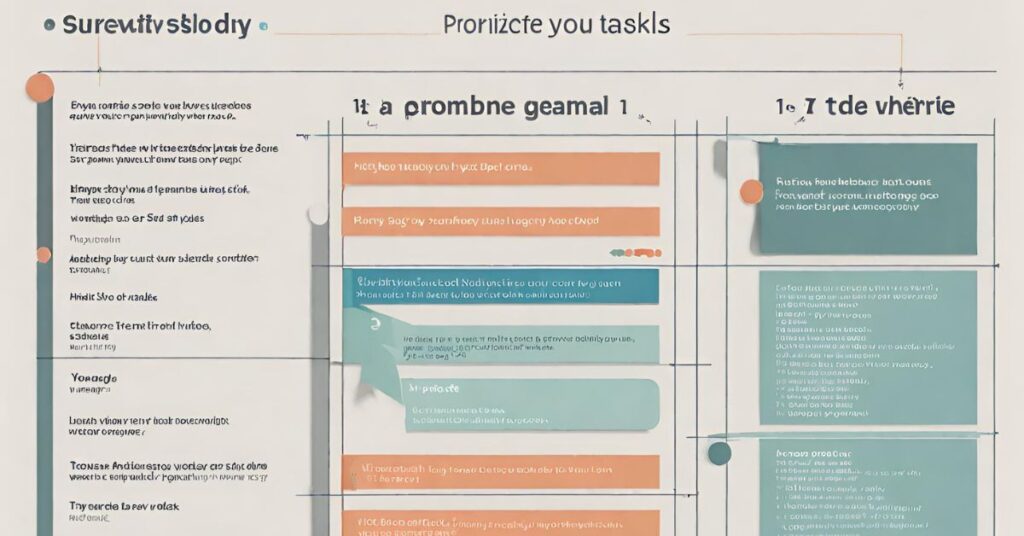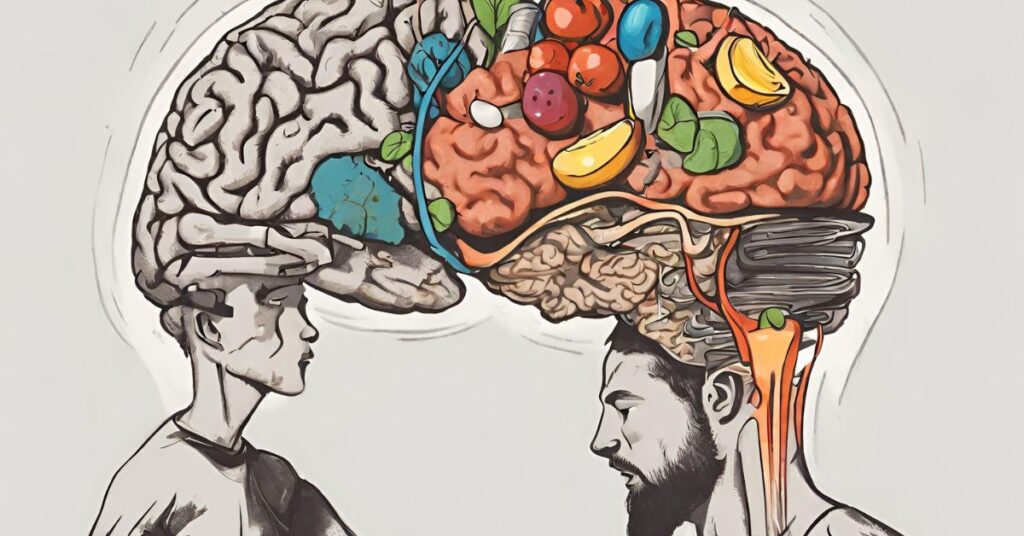If you’re like most people, you understand the importance of having a clear and focused mind. After all, a sharp mind is necessary for achieving success in any area of life.
Whether you’re a student trying to ace an exam, a working professional striving to meet deadlines, or a entrepreneur working on bringing your business vision to life, mental clarity and focus are essential for achieving your goals.
Unfortunately, it’s not always easy to maintain a sharp mind. In our fast-paced, constantly-connected world, it’s all too easy to become overwhelmed and scattered. This can lead to sub-optimal performance in both your personal and professional life.
If you’re looking to regain mental clarity and focus, there are some simple strategies you can implement in your daily life. Here are 9 simple strategies for improving mental clarity and focus:
1. Exercise for Improved Mental Clarity

Exercise isn’t just for physical health. It also has a profound impact on mental health. Numerous studies have shown that regular exercise can help alleviate depression, improve cognitive function and memory, and increase overall mental clarity. For many people, exercise is a key component to a healthy lifestyle.
It helps improve physical health by promoting cardiovascular health, weight loss, and muscle development. Additionally, exercise has been shown to have a positive effect on mental health. It can help reduce stress, anxiety, and depression while also improving cognitive function and memory.
There are a variety of different exercises that can help improve mental clarity. aerobic exercises, such as running, biking, or swimming, are particularly good at promoting mental health. These activities help increase blood flow to the brain and can also reduce stress hormones. Other activities, such as yoga or Tai Chi, can also be beneficial for cognitive enhancement.
Improving mental clarity doesn’t have to be complicated. Something as simple as a brisk walk around the block can make a big difference. The important thing is to find an activity that you enjoy and make it part of your regular routine. With regular exercise, you’ll start to notice an increase in your mental clarity and overall sense of well-being.
2. Take Regular Breaks to Recharge

If you’re like most people, you probably spend the majority of your day sitting at a desk, staring at a computer screen. And while there’s nothing wrong with that, it can take a toll on your mental sharpness.
That’s why it’s important to take regular breaks to recharge. Taking a few minutes to step away from your work can help improve your mental clarity and acuity.
So how often should you take a break? And what should you do during those breaks? Here are a few suggestions:
Every 20 minutes, take a 5-minute break: During your break, get up and move around. Go for a walk, do some stretches, or just pace around your office.
Every 45 minutes, take a 10-minute break: This is a good time to step outside for some fresh air. If you can’t leave your desk, try closing your eyes and taking some deep breaths.
Every 90 minutes, take a 20-minute break: This is a good time to take a proper lunch break. Step away from your desk and take a walk, read a book, or eat lunch with a friend.
Taking regular breaks is important, but what you do during those breaks is just as important. Make sure you’re taking breaks that are active and engaging, rather than just sitting and scrolling through social media.
Doing something active during your break will help you come back to work feeling refreshed and ready to tackle whatever comes your way.
3. Practice Mindfulness and Meditation

Practicing mindfulness and meditation can have many benefits for our mental health and well-being. When we are mindful, we are more aware of our thoughts, feelings, and surroundings.
This can help us to be more present in the moment and less likely to be distracted by thoughts of past or future events. Mindfulness can also help us to become more aware of our own emotions and the emotions of others. This can lead to improved communication and relationships.
There is also evidence that mindfulness and meditation can have positive effects on our brain function. Studies have shown that these practices can help to improve our memory, concentration, and problem-solving skills. They can also decrease stress levels and promote feelings of calm and relaxation.
If you are interested in trying mindfulness or meditation, there are many resources available to help you get started. There are also many different types of mindfulness and meditation practices, so you can choose the one that best suits your needs and interests.
4. Get Enough Sleep

We all know that we need to get enough sleep, but many of us don’t get enough sleep on a regular basis. Getting enough sleep is important for our overall health and well-being.
Not getting enough sleep can lead to a number of health problems, including obesity, diabetes, heart disease, and stroke. It can also negatively impact our mental health, causing problems with memory, concentration, and mood.
There are a number of benefits to getting enough sleep. Getting enough sleep helps to improve our mental focus and acuity. It also helps us to think more clearly. Getting enough sleep can also help to improve our physical health, as it helps to rejuvenate our bodies and helps to reduce inflammation.
There are a number of things you can do to help ensure that you get enough sleep.
- First, make sure that you go to bed at a reasonable time each night.
- Second, create a relaxing bedtime routine that will help you to wind down and prepare for sleep.
- Third, create a comfortable and dark sleeping environment.
- Fourth, avoid caffeine and alcohol before bed. fifth, avoid using electronic devices in bed.
If you’re having trouble sleeping, there are a number of things you can do to help improve your sleep habits. Talk to your doctor about any underlying medical conditions that may be causing your sleep problems.
If you’re taking any medications that may be affecting your sleep, talk to your doctor about changing your dosage or switching to a different medication. Make sure to follow good sleep hygiene habits. And if you’re still having trouble sleeping, you may want to consider seeing a sleep specialist.
5. Keep a Positive Attitude

A positive attitude is one of the most important things you can have in life. It’s been said that a positive attitude is the key to success. And it’s true! A positive attitude can help you achieve your goals, overcome obstacles, and find happiness and success in life.
It’s no secret that a positive attitude contributes to a better life. Studies have shown that people with a positive attitude live longer, healthier lives. They also have increased cognitive abilities and improved brain function. They enjoy clear thinking and are better able to handle stress.
So how do you develop and maintain a positive attitude?
- First, surround yourself with positive people. Spend time with people who are optimistic and who see the glass half full, not half empty.
- Second, focus on the positive. When you find yourself thinking negative thoughts, stop and refocus on the positive.
- Third, be grateful. Be thankful for what you have, not what you don’t have.
- Fourth, find your passion. Doing something you love will make you happier and more positive.
- Fifth, practice forgiveness. Let go of anger and resentments.
- Sixth, take care of yourself. Eating right, exercising, and getting enough sleep will help you feel your best and be at your best.
Developing a positive attitude takes time and effort, but it’s worth it. When you have a positive attitude, you’ll be happier, healthier, and more successful in life. So start today! Surround yourself with positive people, focus on the positive, be grateful, find your passion, practice forgiveness, and take care of yourself.
6. Avoid Multitasking

In our fast-paced, modern world, it’s easy to get caught up in the idea of multitasking. We feel like we have to do everything at once, and that if we’re not constantly doing something, we’re wasting time. This can lead to a lot of stress and anxiety, and it can also lead to some serious problems with our mental health.
Multitasking is actually doing more harm than good. When we try to focus on multiple things at once, our brain isn’t able to process information as efficiently. This can lead to decreased productivity, increased stress levels, and even mental health issues like anxiety and depression.
It’s important to remember that our brains are not designed to multitask. We are much better off focusing on one thing at a time and giving it our full attention. This will help us to be more productive, less stressed, and more mentally healthy overall.
7. Prioritize Your Tasks

When it comes to managing your time and getting things done, it’s important to prioritize your tasks. By knowing what tasks are most important and working on them first, you can ensure that you’re using your time in the most efficient way possible.
One of the benefits of prioritize your tasks is that it can help you to achieve a heightened mental focus. When you have a clear plan of what needs to be done, it’s easier to focus on the task at hand and get it done quickly and effectively. This can be especially helpful when you’re working on complex or challenging tasks that require your full attention.
Another benefit of prioritize your tasks is that it can enhance your focus. When you have a list of tasks to complete, it’s easier to focus on each one and get it done without getting distracted. This can help you to be more productive and get more done in less time.
Finally, prioritize your tasks can also improve your brain function. When you have a clear plan and are focused on completing your tasks, your brain is able to work more efficiently. This can lead to better memory and improved problem-solving skills.
So, if you’re looking to improve your time management and get more done, be sure to prioritize your tasks. By doing so, you can reap the many benefits that come with it, including a heightened mental focus, enhanced focus, and improved brain function.
8. Fuel Your Brain Properly

Your brain is the most important organ in your body. It controls everything from your heart rate to your respiratory system. It’s also responsible for your thoughts, emotions, and memories. So, it’s no surprise that what you eat has a big impact on brain function.
You’ve probably heard that breakfast is the most important meal of the day. That’s because your brain needs fuel to function properly. When you skip breakfast, your brain doesn’t get the nutrients it needs to think clearly and stay focused.
Not sure what to eat for breakfast? Start with these brain-boosting foods:
- Eggs: Eggs are a good source of protein and choline. Choline is an important nutrient for brain health. It’s been shown to improve mental acuity and memory.
- Oats: Oats are a whole grain that’s high in fiber. They’re also a good source of thiamin, a B vitamin that’s important for brain function. Studies have shown that eating oats can improve cognitive function and memory.
- Berries: Blueberries, strawberries, and other berries are packed with antioxidants. These nutrients protect your cells from damage and may help improve brain function.
- Coffee: Coffee is a good source of caffeine. Caffeine has been shown to improve mental clarity and focus.
- Nuts: Nuts are a good source of healthy fats, vitamins, and minerals. They’ve been shown to improve cognitive function and memory.
- Fish: Fish is a good source of omega-3 fatty acids. These nutrients are important for brain health and have been shown to improve mental clarity and memory.
Now that you know what to eat for breakfast, here are some other tips for fueling your brain:
- Eat regular meals: Skipping meals can lead to fatigue and brain fog. Eating regular meals will help keep your energy levels up and your mind sharp.
- Stay hydrated: Drinking plenty of water is essential for proper brain function. Dehydration can cause fatigue, headaches, and difficulty concentrating.
- Stress less: Stress can have a negative impact on brain health. It can lead to anxiety, depression, and difficulty concentrating. So, try to relax and de-stress as much as possible.
9. Utilize Stimulating Activities

Your brain is like a muscle. The more you use it, the stronger it gets. Just as you wouldn’t expect to see much change in your biceps if you only worked them out once a week, you can’t expect much cognitive improvement if you don’t regularly challenge your brain with stimulating activities.
Fortunately, there are many easy ways to give your brain the workout it needs. Here are a few activities that have been shown to help improve brain function:
- Crossword puzzles: Crosswords are a classic brain game that can be enjoyed by people of all ages. They help improve mental acuity and enhance mental clarity.
- Sudoku: Sudoku is another excellent brain game that can be enjoyed by people of all ages. Sudoku helps improve brain function by providing a mental challenge that requires focus and concentration.
- Memory games: Memory games are a great way to keep your brain sharp. By playing memory games, you can help improve your memory and cognitive function.
- Brain teasers: Brain teasers are another excellent way to challenge your brain. By solving brain teasers, you can help improve your problem-solving skills and logic.
- Reading: Reading is a great way to improve your brain function. Reading helps improve your memory, concentration, and critical thinking skills.
- Writing: Writing is another excellent activity for stimulating your brain. Writing helps improve your concentration, memory, and critical thinking skills.
- Social interaction: Social interaction is important for maintaining a healthy brain. Social interaction helps stimulate your brain and can help reduce stress and anxiety.
By including some or all of these activities in your daily routine, you can help give your brain the workout it needs to function at its best.
There are many different things that you can do to help improve your brain function. Some people recommend specific supplements or exercises, but the best way to improve your brain function is to develop healthy habits.
Developing these healthy habits will not only improve your brain function, but they will also improve your overall health. These habits are easy to incorporate into your daily routine and they will make a big difference in your cognitive performance.
Frequently Asked Questions (FAQs) about Improving Mental Clarity and Focus
What is mental clarity and focus?
Mental clarity and focus refer to the ability to think clearly, concentrate, and maintain attention on a specific task or thought. It involves having a sharp, clear mind and being able to easily process and recall information.
Why is mental clarity and focus important?
Mental clarity and focus are crucial for productivity, learning, decision-making, and overall mental well-being. They help in effectively managing stress, improving problem-solving skills, and enhancing creativity.
What factors can impact mental clarity and focus?
Various factors including stress, lack of sleep, poor diet, lack of physical activity, and mental health issues like anxiety or depression can negatively affect mental clarity and focus.
How can I improve my mental clarity and focus naturally?
Improving sleep quality, maintaining a balanced diet, regular physical activity, managing stress, staying hydrated, and taking breaks to avoid mental fatigue can significantly enhance mental clarity and focus.
Can supplements help in enhancing mental clarity and focus?
Yes, certain supplements like omega-3 fatty acids, ginkgo biloba, and vitamins can potentially improve cognitive functions. However, it is essential to consult a healthcare professional before adding any supplements to your regimen.
How does physical exercise contribute to mental clarity?
Physical exercises increase blood flow to the entire body, including the brain, which can help enhance cognitive functions and improve concentration and memory.
How can meditation and mindfulness help?
Meditation and mindfulness practices are known to reduce stress, anxiety, and improve attention, concentration, and overall mental clarity by training the mind to focus on the present moment.
What are some common mental exercises to improve focus?
Mental exercises like puzzles, reading, writing, playing musical instruments, or engaging in activities that challenge the brain can help strengthen cognitive abilities and improve focus.
How does sleep impact mental clarity and focus?
Quality sleep is crucial as it allows the brain to rest, recover, and process information. Poor sleep or lack of sleep can lead to cognitive impairments, including reduced attention, memory, and mental clarity.
Can certain foods improve mental clarity and focus?
Yes, foods rich in antioxidants, good fats, vitamins, and minerals provide energy and aid in protecting the brain, subsequently improving cognitive functions. Examples include leafy greens, fish, nuts, berries, and tea.
Additional Resources
For more insights and personalized advice on improving mental clarity and focus, consider seeking professional help from a psychologist, counselor, or a healthcare provider who can offer tailored strategies based on individual needs and circumstances.









